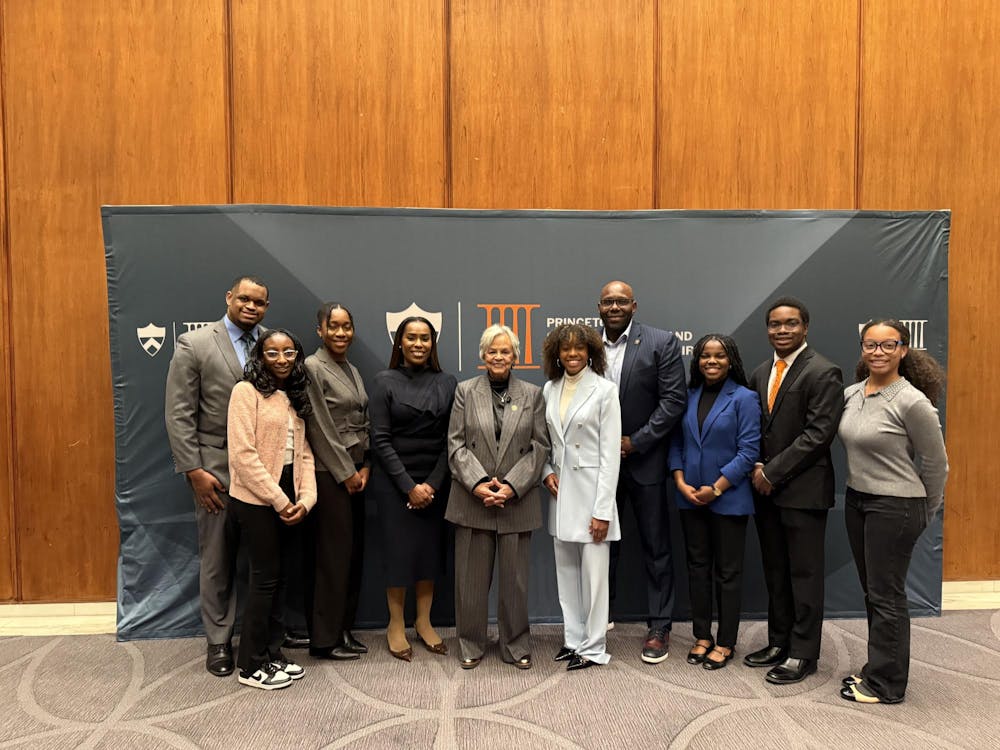In times of war, the last thing a soldier wants to do is befriend his enemy — unless it's his job.
Arno Mayer, an emeritus history professor, had to do just that during World War II, taking care of Nazi prisoners as if they were sick friends. For a year and a half during the war, Mayer was stationed at Fort Hunt, Va., where the U.S. Army brought some Nazi German scientists and generals for interrogation.
"I was to keep them happy because we were trying to entice them to work for the American army," Mayer said. "I was to provide them with newspapers, liquor and, one time, we came close to providing them with women."
"[The goal] with the German scientists was primarily to get them to work for us and with the German officers, who primarily were generals ... the main purpose was to get information about the order of battle of the red army," Mayer added.
Mayer went back to Fort Hunt earlier this month for a reunion for World War II veterans who served there. His 60-year-old memories — the secrets that he and his fellow soldiers had promised to keep — received media attention.
Reports from The Washington Post and The Seattle Times, among other papers, implied that the occasion was the first time that the veterans broke their silence and spoke of their experiences at Fort Hunt. Mayer said that this was not the case.
"They said that we were sworn to secrecy until we met that weekend," Mayer said. "I gave an interview for a book which came out in 1984, and I'm not the only one to have talked before. The thing is that when you swear to secrecy you don't really know when the oath expires."
Of the media's spin on the event, Mayer said, "It's hype." But he understood the intention of the coverage: "It makes us sound a hell of a lot more interesting," he said.

Mayer said that the reason for his enthusiasm to attend the event, which was named for the post office box of the fort, "The P.O. Box 1142 Reunion and Research Symposium," stemmed not from an opportunity to reveal secrets, but rather from a desire to see his friends.
"It was a reunion of people who had been part of different branches of this intelligence operation, and one of the things I always look forward to is to meet two or three of my soldier friends," Mayer said.
His enthusiasm, however, was immediately dampened upon arriving at the reunion and receiving his schedule. Several of the day's events were centered on current Army politics, a fact Mayer had not been informed of and did not support.
"I didn't have the slightest idea that, in so many different ways, the Army would try to appropriate and instrumentalize what was supposed to be a get-together of veterans," he said. "I had not been told that the Army had anything to do with this because it was organized by the National Park Service."

During one of the Army-sponsored events, Mayer, a strong opponent of the Iraq war, refused to accept a certificate of appreciation from the Army's Freedom Team Salute.
He objected to two sentences on the certificate that read, "Your legacy is today's Army and the values Soldiers exhibit while fighting the Global War on Terrorism. Their efforts are a direct reflection of your service, and the United States Army and a grateful Nation thank you."
Had he accepted the document — signed by the U.S. Army Chief of Staff George Casey, and the Secretary of the Army Pete Geren — Mayer said he thought he would have been professing support for the current war.
"I think that unlike World War II, which was necessary ... this war is not a necessary war," he said, adding that his disapproval also extends to the Democratic Party's response to the war. "I am very critical of the war, and I am also very critical of those who claim to be against the war, like the Democrats who shuffle their feet and don't have the civic courage to really protest."
This lack of initiative in protesting the war is something Mayer feels extends to the American people as a whole. Mayer, who was born in Luxembourg and spends a great deal of time abroad, said that it was upon his recent return to the United States that a discrepancy became apparent to him. "This time in particular coming back it struck me, this is a country at war, [but] you don't get the sense this is a country at war."
Mayer, who began teaching European history at the University in 1961, recalled the campus-wide response to the Vietnam War.
"In the late 1960s and early '70s hell broke loose even at Princeton. When there was a major demonstration ... Princeton had a contingent that marched," Mayer said. "It made headlines all over the country. 'Even Princeton' was the banner under which they marched. There were great demonstrations, debates, and there were protests."
But he is saddened that a similar response cannot be seen to the current Iraq war. "I am appalled not just at the quietude here at Princeton but in this country."







